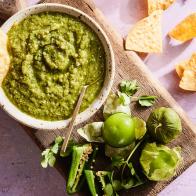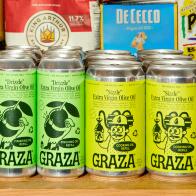5 Things to Know About 'Natural' Wine


The word “natural” is notoriously indistinct and ill-defined when it comes to food (though that may one day change). The term may seem especially cloudy when it is applied to wine. Yet, NPR’s The Salt blog notes, “natural wine” is currently a cult hit.
WBUR reporter Andrea Shea, clearly a fan, has offered a primer on natural wine. Here are a few things to know:
The Definition Is a Bit Murky: “In theory, it’s taking fruit that is grown at least organically, then taking it into the cellar and adding nothing, while also not taking anything away,” wine expert Stephen Meuse tells Shea.
The Wines Can Be Murky, Too: They “can be darker than usual, a little fizzy, cloudy or with good-sized clumps of yeast floating about,” Shea explains. “They’re often rough, which some people find charming. Others think they’re unsophisticated.”
Organic and Natural Are Not the Same: While the grapes in organic wines are converted into fermented wine without chemicals, after fermentation winemakers can use any chemicals they wish. “Natural” wines, on the other hand, are made without additives from start to finish — or at least that’s the idea; it’s hard to verify.
You Can Take It Even Further: Some winemakers have made a business out of turning out natural wines without using any machinery at all, aiming to make wine as it was made in “pre-industrial times,” one such vintner tells Shea. These wines may be known as “pre-industrial wines.”
They’re Not for Everyone: Meuse told Shea that making natural wines presented a “steep learning curve” for winemakers and a “steep appreciation curve” for wine consumers.
Photo courtesy of iStock.































































